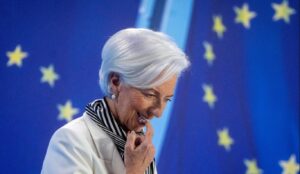China's Ongoing Crypto Crackdown Is All About Perception
5 min readCalling it a blood bath is an understatement.
On July 23, Chinese stocks listed in the U.S. plunged as Beijing issued new regulations cracking down on education technology companies that provide services such as tutoring. New Oriental, an institute where your correspondent spent a good amount of her youth in Beijing, dropped 60% when the market opened. Others saw their market caps decline by more than 50%.
The ed tech sector isn’t alone in this free fall. Large-cap Chinese internet companies have been in decline for weeks. This week’s da bing attempts to explain why the Chinese government suddenly cracked down on all things internet—and how that might help us understand why its recent crypto crackdown isn’t really about crypto per se, but is part of a much wider cleanup.
No one escaped
American politicians have been grousing about wanting to crack down on Big Tech for years, yet little has been done. While the government in China hasn’t made much noise, once it decided to show its hand, it slayed every internet giant in sight.
It started in April when the Chinese government decided to teach Jack Ma a lesson by killing the Ant Financial IPO.
Things escalated in July when Beijing stopped DiDi, the Uber of China, from signing up new customers, and threatened to remove its app from app stores. That happened two days after the company’s U.S. IPO.
Other internet giants suffered a similar fate in short order. China’s antitrust regulators told Tencent, the conglomerate that owns the famous WeChat, to give up its exclusive music-licensing rights, and fined it for previous misbehavior. The $78,000 fine was a slap on the wrist, but the gesture was clear and loud: nothing will grow too big to fail in the regime.
Multiple moving pieces
There are many moving pieces in the recent crackdown targeting different sectors. The government’s logic falls into three general categories:
Cleaning up genuinely bad stuff. Here, “education technology” firms have been impacted the most and the entire industry is likely to be wiped out in the next few years. But this policy has the most public approval. The reality in China these days is that kids are forced to take multiple, expensive tutoring sessions outside of school to be competitive.
That has bred billion-dollar ed tech companies that feed off parents’ anxiety that their children might get left behind. The pattern became toxic when tutoring fees became exponentially expensive, and only the well-off families could afford it. To promote its image as a government that advocates for the masses, the government issued a clear-cut ban that impacts any tutoring organizations. Though most of these companies tend to provide other services, such as toys that teach robotics and SaaS products that aid teachers, by targeting tutoring, the crackdown will cut these ed tech firms’ top-line revenue by 90%.
Monopoly busting. To Beijing, the internet giants are like free-range chickens: They are allowed to roam around and grow as big as they want. However, they must never be allowed to take over the estate—and once they get too big, they must be consumed.
“Consuming the chickens” has become necessary for a few reasons. First, the duopoly of Tencent and Alibaba is stifling competition. The Tencent ecosystem is composed of hundreds of companies covering social media, healthcare, media, gaming, and enterprise software. It even owns a 21% stake of Meituan, China’s largest lifestyle application. Internationally, it also owns 12% stakes in Snap and 5% in Tesla.
Alibaba is the same story.
The common perception in China’s tech industry is that these two Goliaths will scoop up any up-and-coming tech companies, leaving no room for potential disruption or competition.
Capital Control. On the surface, the case against DiDi seems to be about information security. Deep down, however, it is about so-called variable interest entities (VIEs), which allow Chinese firms to be listed on the US stock market. As China strives to build its own capital market, seeing one of its domestic giants choose to list on a U.S. stock exchange is deeply humiliating. So the government rolled out a new policy against any internet company using the VIE loophole to go public, further walling off Chinese capital from the rest of the world.
Perception matters
Perhaps most importantly, it’s not about the damage that Big Tech has done but the perceived influence these new titans wield. Yes, a monopoly exists but one could also argue that there’s a healthy amount of duopoly and competition going on between the giants.
But what’s really dangerous, from the government’s point of view, is the perception that Big Tech is too big to fail, and therefore not subject to government control. That narrative would inevitably undermine the Chinese government’s total control over the economy, which is undesirable as President Xi continues to try to tighten his grip.
And this is precisely where crypto comes in. The damage that crypto has done to China’s society is minimal. However, because of its permission-less nature and close proximity to the Western world, crypto in China gives an impression that China is a free market and can tolerate novel Western ideas. That is inherently contradictory to what the government stands for—and an ideology that it wants no citizen exposed to. Because of that danger, the government thinks it must crack down on crypto.
The current shakeup reminds me of 2009, when China banned Facebook for the first time: It defined what the internet is, and is not, in China. This time, the tech giants have to collaborate and redefine what the internet business is—and is not.









